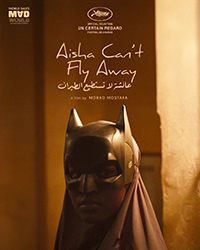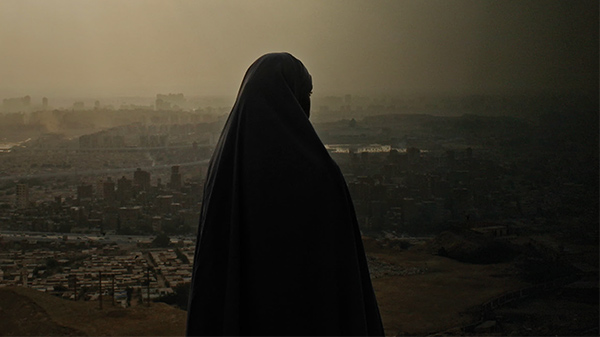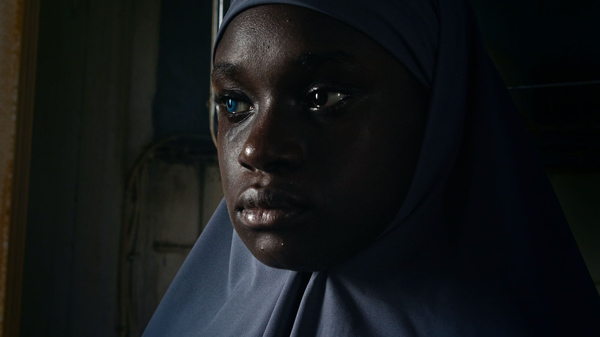Buliana Simon Shines In Gritty Immigrant Story That Struggles To Take Flight
 As the opening credits reveal, Aisha Can’t Fly was developed with the support of almost every international film festival and lab you can think of. Unfortunately, all that the time spent inside the industry kitchen results in director Morad Mostafa’s debut feature coming out of the oven overworked and over-seasoned. This bleak and despairing slow-burning drama loses focus of what it’s trying to convey, despite a strong lead performance by model Buliana Simon in her first role.
As the opening credits reveal, Aisha Can’t Fly was developed with the support of almost every international film festival and lab you can think of. Unfortunately, all that the time spent inside the industry kitchen results in director Morad Mostafa’s debut feature coming out of the oven overworked and over-seasoned. This bleak and despairing slow-burning drama loses focus of what it’s trying to convey, despite a strong lead performance by model Buliana Simon in her first role.
Aisha’s days are filled with dust, medical tape, and bus rides back and forth across Cairo. A Sudanese refugee who has escaped the civil war, she works as a maid and caregiver for the elderly. The job pays little, but Aisha manages to live rent rent free by copying the keys to her client’s homes so they can be easily burglarized by Zuka (Ziad Zaza) and his gang that controls the neighborhood. But when Aisha is suspected of abetting these crimes, she’s reassigned to a sole client, Mr. Khalil (Mamdouh Saleh) putting her deal with Zuka in jeopardy. This is just the start of a journey that rivals Lars von Trier in its punishment of its female lead, though without the emotional and intellectual rigor.

The script, by Mostafa along with Sawsan Yusuf and Mohamed Abdelqadar, pens no shortage of indignities and humiliations to put in Aisha’s path. She’s gratuitously sexually assaulted, caught in a doomed romance with an Egyptian chef, and eventually finds herself literally dodging bullets in the crossfire of a gang war. If that’s not enough, the screenplay adds a metaphorical ostrich that Aisha encounters in a handful of extraneous fantasy sequences.
It’s a script that feels shaped to fit all its ideas, rather than focusing and sharpening the ones that work best. Aisha Can’t Fly grasps at saying something about the repression and exploitation of immigrants and refugees, but its articulation manages to be both hamfisted and unclear. A closing shot seems to suggest a serious reckoning must be taken about how those that will care for Egypt’s elderly are treated, but we might be giving it more thought than the filmmakers did.
 Nevertheless, Mostafa’s direction is confident, and working with cinematographer Mostafa El Kashef, they capture a refreshingly unromantic, unsanitized vision of urban Cairo. The film works best when it moves away from its plot elements, and focuses on the rhythms of women’s labor and domesticity in a manner that evokes Chantal Akerman’s Jeanne Dielman, particularly in its measured, largely unspoken opening sequence. There are also shades the Dardennes with the picture’s social element, and frequent use of intimate, handheld camera work. However, these qualities struggle to resonate when the film shifts toward generic genre elements that often highlight some of the screenplay’s contrivances (Aisha’s apartment window just happens to look out on the courtyard where Zuka and his gang hang out and conduct business).
Nevertheless, Mostafa’s direction is confident, and working with cinematographer Mostafa El Kashef, they capture a refreshingly unromantic, unsanitized vision of urban Cairo. The film works best when it moves away from its plot elements, and focuses on the rhythms of women’s labor and domesticity in a manner that evokes Chantal Akerman’s Jeanne Dielman, particularly in its measured, largely unspoken opening sequence. There are also shades the Dardennes with the picture’s social element, and frequent use of intimate, handheld camera work. However, these qualities struggle to resonate when the film shifts toward generic genre elements that often highlight some of the screenplay’s contrivances (Aisha’s apartment window just happens to look out on the courtyard where Zuka and his gang hang out and conduct business).
Carrying the film is Simon, who finds the steel spine of Aisha, a character that keeps her head held high even as her spirit is scarred, just like the growing rash of scabs that ring her torso. It’s a breakout turn by the actress, whose voice for Aisha seems to advocate for her much more loudly than the film itself does.
Reviewed on May 20th at the 2025 Cannes Film Festival (78th edition) – Un Certain Regard. 123 Mins
★★/☆☆☆☆☆


